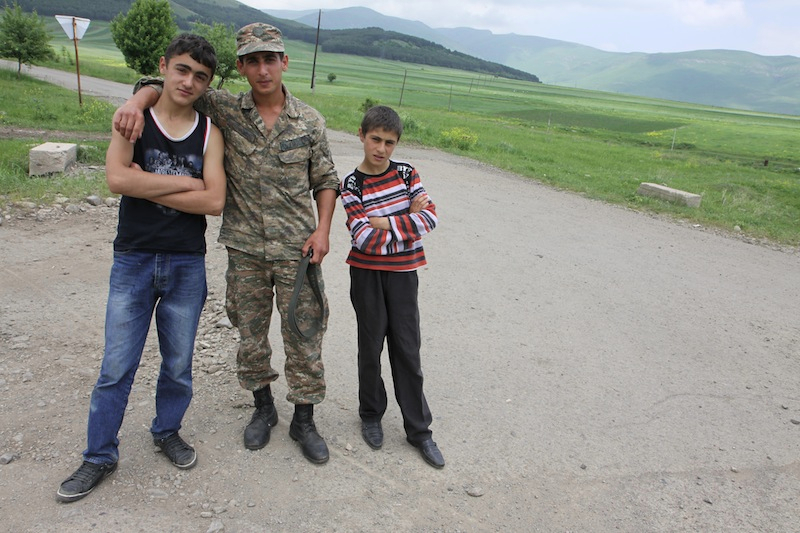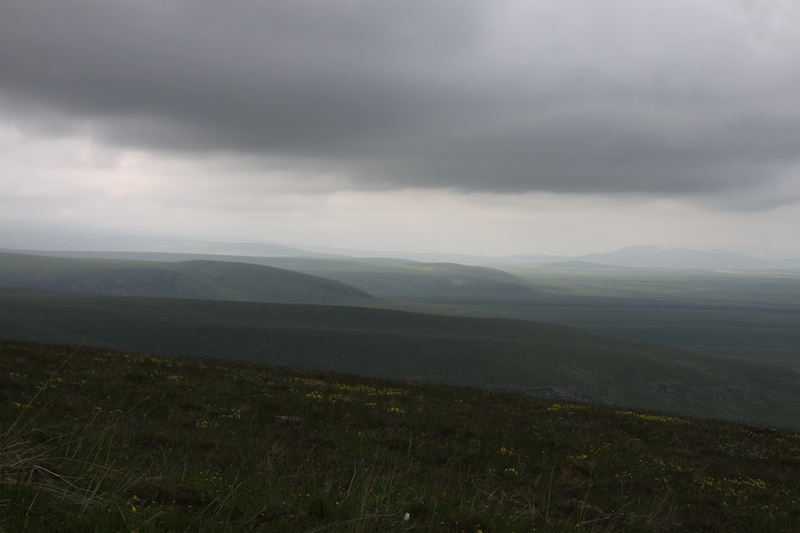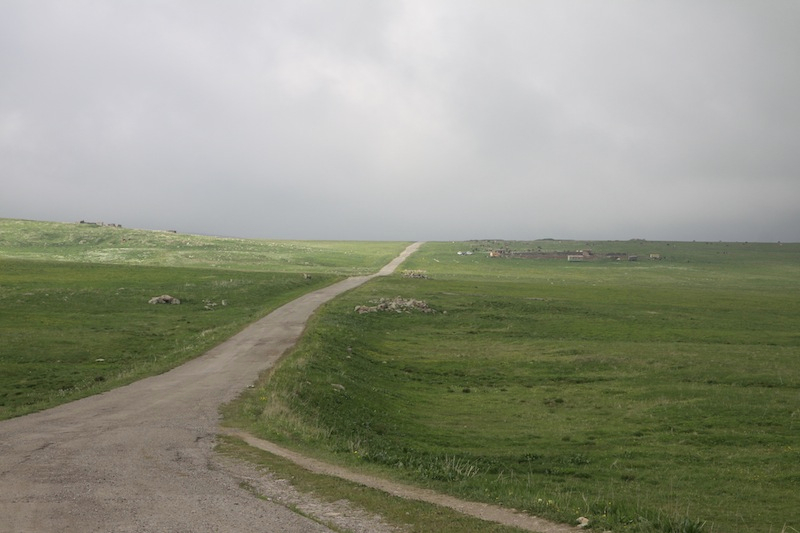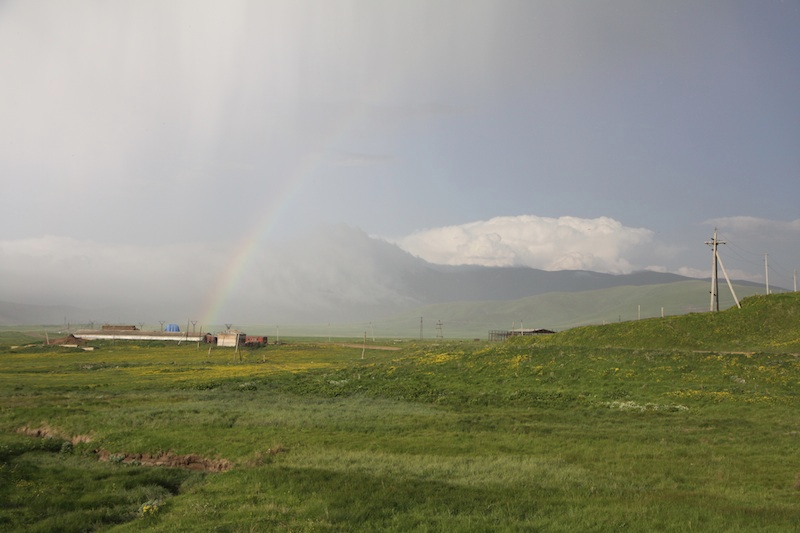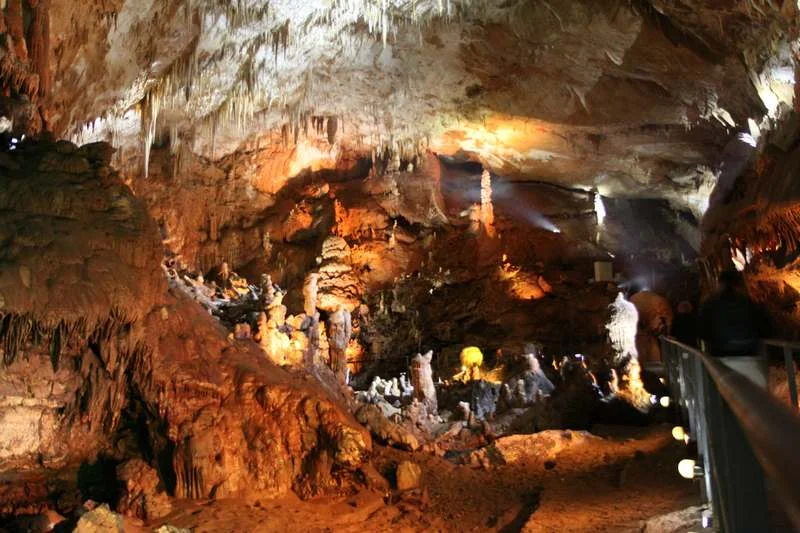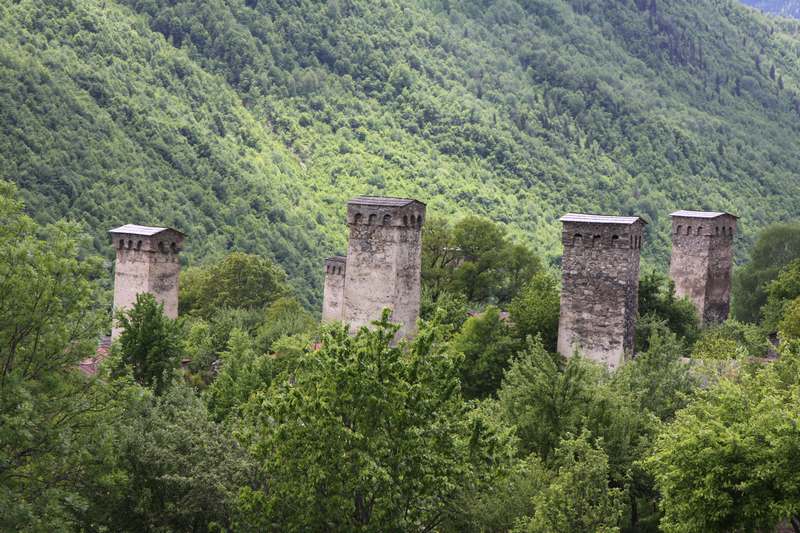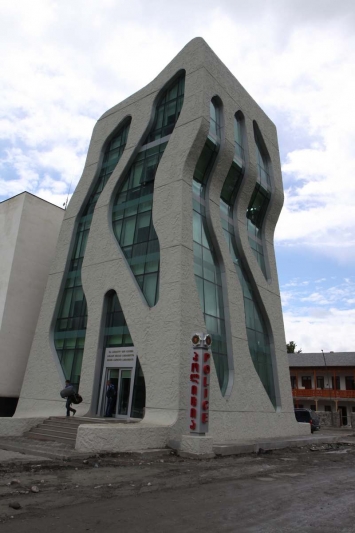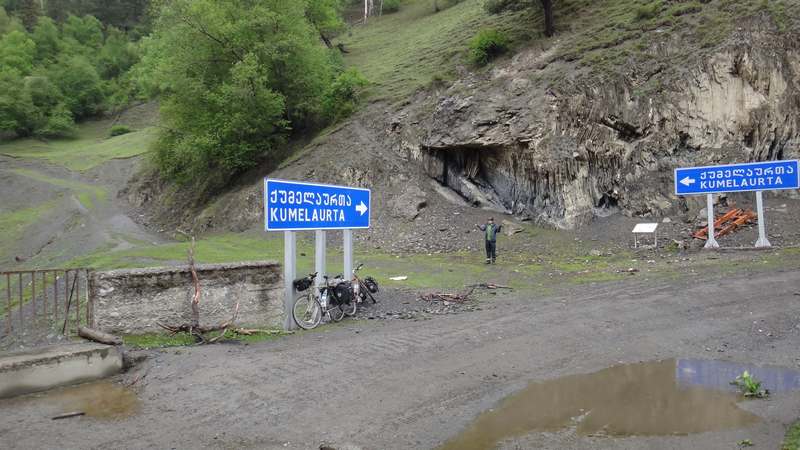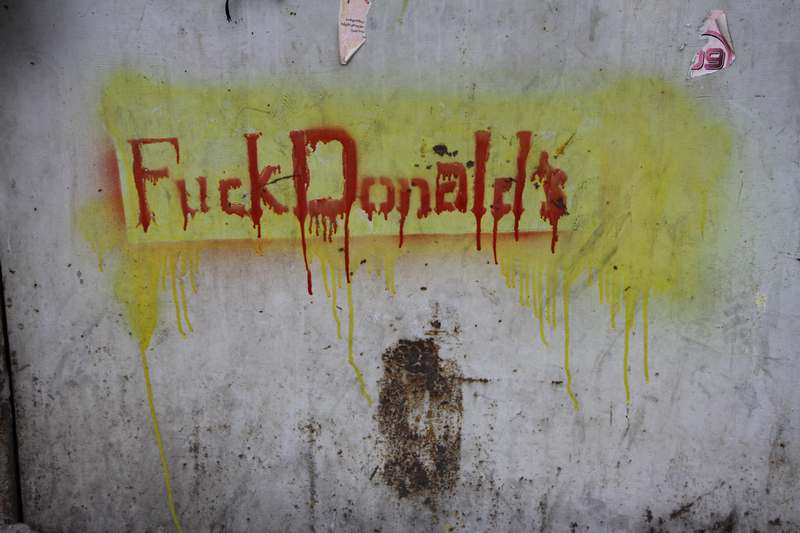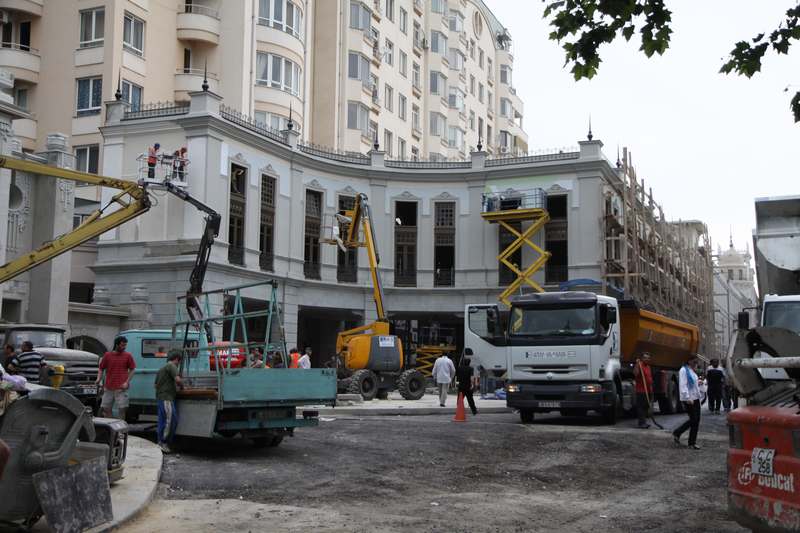The hail comes down hard on my head and back, I try to keep my feet on my sleeping mat, I regret taking the 3/4 length one, it's small, my tent is collapsed around me and it is hailing like crazy. Perched on the flat corner of a steep switchback road, my pegs cannot withstand the strong winds from the raging storm outside. For a half hour, I hold the tent upright until the storm slows, the thunder continues to roar overhead while lightning strikes almost continuously. THe water flowing through my tent is the least of my worries. Finally, I am able to get out and put the pegs back in, with large rocks to hold them in place this time. I return to the warmth of my sleeping bag, now a little soggy but still cozy. I lay still as yet another, and then another round of heavy rain, thunder lightning and hail sweep over. I then hear rocks falling, sliding and tumbling from the steep bank about. In my mind I try to picture that bank. Am I in the line of those rocks I wonder? Hmmm... I have nowhere to go anyway, it should be ok. Finally at 4 am, the weather improves and I sleep...but not for long. 5 am. All I can hear is the distinct howling of wolves, not just one but many, in different locations around us. I remember the last words we'd hear from an English speaking Georgian at the bottom of the valley: "Watch out for snakes, bears and wolves. Make fire!". Rather sleepy, we pack up and continue up the grueling climb to 2900 m to pass into the most spectacular Tusheti Valley, an area seemingly forgotten by most modern developments for hundreds of years. Animal herders move their stock over the pass, some foundering along the way, only to be left to be cleaned up my the vultures, wolves and foxes. A sad sight after watching the poor animal being beaten to keep up with the flock as it struggled onwards. Each year this migration of people and animals occurs as the snow melts and makes the valley accessible again to these hardy people for whom this lifestyle has continued with little change for thousands of years. During winter, a few hardy soles remain in this isolated valleys to look after the livestock which are not strong enough to survive the tough journey back to the lowlands.














